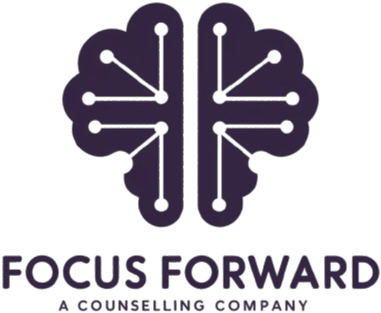5 Proven Techniques to Stop Overthinking and Reclaim Your Mind
In today’s fast-paced world, it’s easy to get caught in the cycle of overthinking. We often find ourselves worrying about the past or the future. This constant thinking can really affect our mental health.
But, there are strategies that can help you stop overthinking. With the right techniques, you can take back your mental clarity and focus. This guide will show you five proven ways to do just that.
By understanding why we overthink, practicing mindfulness, and using cognitive strategies, we can manage our thoughts better. This will help you achieve mental clarity and be more aware of the present moment. Get ready to improve your mental health and live a more focused life.
Key Takeaways
- Understand the cycle of overthinking and identify your triggers
- Explore the negative impacts of rumination on your mental health
- Discover the power of mindfulness and meditation in breaking the overthinking habit
- Learn cognitive restructuring techniques to challenge negative thought patterns
- Utilize effective distraction and refocusing strategies to shift your attention
- Develop a mindful routine and seek professional help when needed
- Unlock the benefits of journaling and self-reflection to manage overthinking
Understanding the Cycle of Overthinking
Overthinking is a common issue that affects our mental health deeply. It involves thinking too much, worrying a lot, and feeling anxious all the time. Knowing how this cycle works is key to stopping it and getting clear thoughts back.
Identifying the Triggers and Patterns
Overthinking often starts with certain triggers like stress, tough decisions, or misunderstandings. These can make you think and worry a lot, making it hard to stop. By knowing what triggers your overthinking, you can deal with them better.
It’s also important to see the patterns in your overthinking. Do you always think about the same things? Do some situations make you feel mentally cluttered? Knowing these patterns helps you understand why you overthink and how to stop it.
The Negative Impact of Rumination
Thinking too much, or rumination, can really hurt our mental health. It can make us more stressed, anxious, and less able to focus. This can stop us from being productive and happy. It’s crucial to stop this cycle to stay mentally healthy.
| Negative Impact of Rumination | Positive Impact of Overcoming Overthinking |
|---|---|
| Increased stress and anxiety | Improved mental clarity and focus |
| Reduced productivity and decision-making abilities | Enhanced emotional regulation and resilience |
| Difficulty in maintaining healthy relationships | Increased sense of control and well-being |
Understanding overthinking and its bad effects helps you start to change. The first step is to be aware and work on managing your mind better. This journey to stop overthinking is about being aware and using good strategies.
Practicing Mindfulness and Meditation
Mindfulness and meditation are great for stopping overthinking. They help you stay in the moment, calm your mind, and focus better. Adding these to your daily life can break the cycle of constant thinking and boost your mental clarity.
One big plus of mindfulness is it keeps you in the now. Overthinking often makes you think about the past or future. Techniques like deep breathing and body scans help bring your focus back to the present. This reduces the impact of unwanted thoughts.
Meditation is a way to calm your mind more deeply. It’s been proven to lessen stress, improve focus, and help with cognitive behavioral techniques. Simple meditations, like focusing on your breath or a mantra, can lead to peace and clarity inside.
Adding mindfulness practices and meditation to your daily life can change how you handle overthinking. Begin with a few minutes a day and slowly add more time as you get better at it. Making mindfulness a habit helps you take back control of your thoughts and improve your mental health.
“Mindfulness is the basic human ability to be fully present, aware of where we are and what we’re doing, and not overly reactive or overwhelmed by what’s going on around us.” – Jon Kabat-Zinn
| Mindfulness Techniques | Benefits |
|---|---|
| Deep Breathing Exercises | Reduces stress and anxiety, promotes relaxation |
| Body Scans | Increases body awareness, helps release tension |
| Guided Meditations | Improves focus, enhances cognitive abilities |
| Mantra Repetition | Calms the mind, promotes inner peace |
Cognitive Restructuring: Challenging Negative Thoughts
Cognitive restructuring is a strong method to help you stop overthinking and improve your mental health. It teaches you to spot and question negative thoughts. This can lead to a more balanced mindset, better emotional control, and more control over your thoughts.
Recognizing Cognitive Distortions
First, you need to notice the cognitive distortions that make you overthink. These are wrong thought patterns that cause negative feelings and endless thinking. Common ones include thinking everything is all or nothing, expecting the worst, and blaming yourself too much. Knowing these traps helps you question your negative thoughts and see things more clearly.
Reframing Your Perspective
After spotting these distortions, it’s time to change how you think. This means swapping negative thoughts for more balanced ones. Cognitive behavioral techniques are great for this, as they help you question your thoughts and find other reasons. By using thought control strategies, you can slowly change your mindset and feel more mentally clear.
“The greatest weapon against stress is our ability to choose one thought over another.” – William James
Changing your thoughts through cognitive restructuring takes effort, but it’s worth it. By fighting your negative thoughts and changing how you see things, you can stop overthinking. This powerful method is key to a more mindful, balanced, and empowered life.
The Power of Distraction and Refocusing
Want to clear your mind and stop overthinking? Using distraction and refocusing can help a lot. Doing things you enjoy and changing your focus can break the cycle of overthinking. This helps you get back your mental clarity.
Engaging in Pleasurable Activities
When we can’t stop thinking, it’s key to change our focus. Doing things that make us happy can fight off overthinking. It could be a hobby, time with family, or getting lost in a good book or movie. These activities can move our focus to a better place.
Shifting Your Attention Mindfully
Enjoyable activities are great, but mindfulness is also key to clear thinking. By focusing on now, we can escape endless thoughts. This helps us take charge of our minds. We become more aware of our thoughts and feelings, making better choices.
Getting back to mental clarity is an ongoing process. But with the right methods, you can improve your mental health and handle life’s ups and downs.
5 Proven Techniques to Stop Overthinking and Reclaim Your Mind
Overthinking can really take over, making it hard to enjoy the moment. But, you can break free and take back your peace of mind. Here are five techniques to help you stop overthinking and take control of your thoughts.
- Mindfulness and Meditation: Regular mindfulness can make you more aware of your thoughts and feelings. This lets you watch them without getting lost in them. Meditation can reduce stress, improve focus, and help you manage your emotions better.
- Cognitive Restructuring: Challenge negative thoughts and change your outlook. This can help you switch to more positive thinking. It makes life seem more balanced and realistic.
- Distraction and Refocusing: If you catch yourself overthinking, try doing something fun or focus on the now. This can stop the cycle and bring you back to the present.
- Journaling and Self-Reflection: Writing down your thoughts and feelings can help you understand your patterns better. It’s a good way to process your experiences in a healthy way.
- Developing a Mindful Routine: Add mindfulness to your daily life with activities like mindful breaks or moving around. This can make you more present and intentional in your daily tasks.
Using these techniques regularly can help you fight overthinking and clear your mind. Remember, changing your mind takes time, but it’s worth it for a calmer, more focused life.
“The greatest weapon against stress is our ability to choose one thought over another.” – William James
Journaling and Self-Reflection
Dealing with overthinking can feel overwhelming, but journaling and self-reflection can change that. They are key in mind management, mental decluttering, and reducing rumination. Writing down your thoughts helps you understand your mind better. This lets you take charge of your mental health.
Acknowledging and Releasing Thoughts
Journaling helps you acknowledge your thoughts and feelings. It stops them from racing in your head. By putting them on paper, you start to release their grip on you. This makes room for better thoughts.
Through journaling, you might notice patterns or triggers. These can show you why you overthink things. Knowing this, you can work on those issues. This leads to more mental clarity and control.
“Journaling is a powerful tool for unlocking the secrets of your own mind, allowing you to gain a deeper understanding of yourself and the thoughts that shape your reality.”
It doesn’t matter if you like writing by hand or using a digital journal. The important thing is to find a method that feels right to you. Making it a daily habit can greatly improve how you manage your mind and declutter your thoughts.
Remember, improving your mental health is a personal journey. Journaling is a great tool to help you. Let self-reflection lead you to a more focused, centered, and empowered mindset.
Developing a Mindful Routine
Adding mindfulness practices to your daily life helps you gain mental clarity. It lets you control your thoughts better. By doing mindfulness regularly, you can handle your thoughts better. This helps you stay in the moment and think less.
Incorporating Mindfulness into Daily Life
You don’t need to only meditate to be mindful. Here are some easy ways to add mindfulness to your daily activities:
- Start your day with a short mindful meditation, just 5-10 minutes.
- Take mindful breaks during the day, like a walk or deep breaths.
- Enjoy your meals more by paying attention to the taste, texture, and smell.
- Listen better in conversations by focusing on the speaker.
- End your day with a mindful reflection or journaling to think about your thoughts and feelings.
Adding mindfulness practices to your daily routine helps you feel more clear-headed. It helps you take back control from overthinking.
“Mindfulness is the basic human ability to be fully present, aware of where we are and what we’re doing, and not overly reactive or overwhelmed by what’s going on around us.”
Seeking Professional Help
While the cognitive behavioral techniques in this guide can help you stop overthinking, sometimes you need professional help. If you have ongoing mental health issues or can’t manage intrusive thoughts, a therapist or counselor can be very helpful.
When to Consider Therapy or Counseling
If your overthinking is really affecting your life, feelings, or how you function, it’s time to think about getting help. Here are some signs that you might need therapy or counseling:
- You can’t use cognitive behavioral techniques or other self-help methods well.
- You keep feeling anxious, depressed, or have other mental health problems.
- You’re having trouble staying focused and clear in your personal or work life.
- You feel stuck in a cycle of thinking too much and can’t break free.
A mental health expert can offer support, advice, and strategies to help you overcome overthinking. They can help you get back your mental clarity and control.
“Seeking professional help is a sign of strength, not weakness. It’s about taking charge of your mental health and well-being.”
Therapists use methods like cognitive-behavioral therapy (CBT) to help you spot and challenge negative thoughts. They also teach you ways to handle anxiety and stress. With a mental health expert’s help, you can reclaim your mental clarity and find balance in your life.
Conclusion
In this guide, we’ve looked at five ways to stop overthinking and clear your mind. We’ve seen how to break the cycle of overthinking. We’ve also learned about mindfulness, meditation, and how to change your thoughts.
Using distraction and focusing on other things can help too. Journaling and reflecting on your thoughts are also key. These strategies can help you manage your thoughts better, reduce anxiety, and feel more in control.
Remember, getting your mind back is a journey. With regular practice, you can live a more fulfilling life. You’ll be able to focus on the present more.
By using these five techniques, you can avoid the pitfalls of overthinking. You’ll gain mental clarity and reach your full potential. Start this journey now and see how a clear mind can improve your life.
FAQ
What are the five proven techniques to stop overthinking and reclaim my mind?
This guide shares five effective ways to stop overthinking. They are: 1) Understanding the cycle of overthinking, 2) Practicing mindfulness and meditation, 3) Cognitive restructuring and challenging negative thoughts, 4) The power of distraction and refocusing, and 5) Developing a mindful routine.
How can I identify the triggers and patterns that lead to overthinking?
To stop overthinking, first understand its cycle. Learn to spot your triggers and patterns. This means recognizing situations, emotions, or thoughts that make you overthink.
What are the benefits of mindfulness and meditation for stopping overthinking?
Mindfulness and meditation keep you in the moment, calm your mind, and help you focus. They break the overthinking cycle by training your mind to stay present. This way, you won’t worry about the past or future as much.
How can cognitive restructuring help me challenge negative thought patterns?
Cognitive restructuring helps you fight negative thoughts. It means spotting and challenging these thoughts. By changing your thoughts to be more balanced and positive, you can lessen overthinking and think more healthily.
What role does distraction and refocusing play in stopping overthinking?
Doing fun activities and focusing on something positive can stop overthinking. It breaks the cycle of thinking too much. This helps you clear your mind and focus better.
How can developing a mindful routine help me manage overthinking?
Adding mindfulness to your day, like meditation or deep breathing, keeps you calm and focused. Making mindfulness a habit helps you avoid and handle overthinking better.
When should I consider seeking professional help for my overthinking?
If overthinking affects your daily life, mental health, or well-being, get help. A therapist or counselor can offer support, strategies, and resources to manage overthinking and improve your mental clarity. Book an appointment here today with us!








One Response